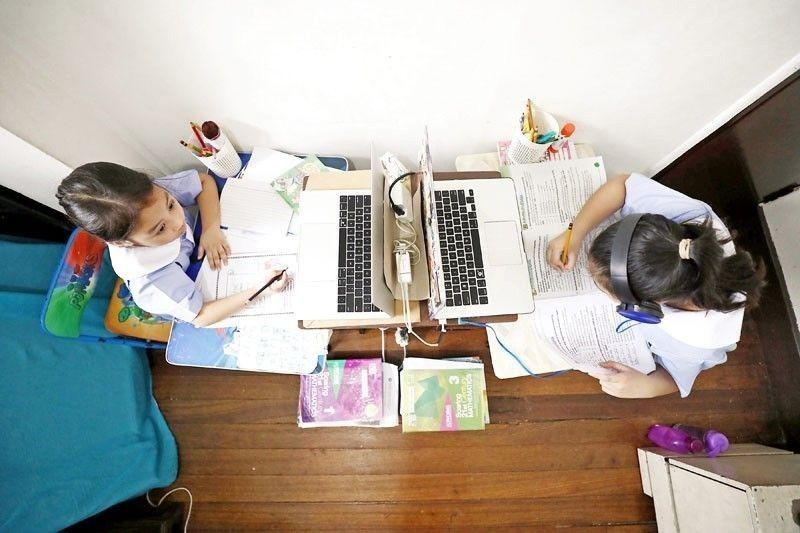Only Philippines, Venezuela yet to allow return to classroom learning

MANILA, Philippines — The Philippines and Venezuela are the last countries in the world where schools are still shut due to the coronavirus pandemic, as Kuwait, Bangladesh and Saudi Arabia move to reopen some of their schools this month, a United Nations Children's Fund official said Wednesday.
"We have to do this in the best way possible," said Isy Faingold, who heads education work in UNICEF-Philippines in a forum. "We have to do this gradual, on a voluntary basis, and learning from experience of other countries but adapting to the experience of the Philippines."
Faingold said Kuwait would resume in-person classes in 1,460 schools with a gradual reopening for all levels, while Bangladesh would do so for select grade levels.
Saudi Arabia, he said, would allow high school students who are fully vaccinated against COVID-19 to return to classrooms, while those in the primary level would continue online classes until October.
President Rodrigo Duterte has so far rejected calls for a pilot study, and his prerequisite for allowing it is far from the picture yet — vaccination for kids, as the country faces limited supply of the jabs.
"We have seen almost all countries in the world close their schools at the beginning of the pandemic," Faingold said. "At the time, it was the right thing to do...but school closures have many negative effects starting with learning loss."
The Department of Education has said it will make a new proposal to Duterte to allow at least 120 schools. An official also told a Senate hearing that classroom sizes would be trimmed down and in-person classes limited.
Best practices
Faingold cited strategies that some countries took that he said the Philippines could also consider.
China, Vietnam and Indonesia, for example, took on a phased approach and started in low-risk areas. Others such as Sweden began with early grades and Singapore with senior high school students.
He added some developed routines such as holding classes outdoors while the United Kingdom, Singapore, and Canada had "classroom bubbles."
"It helps to limit closure if infection is detected," Faingold continued. "You don't have to close the whole school but just ask the bubble or group of students [with] a COVID case to isolate. But others can still continue in in-person education."
The UNICEF official said some countries recruited temporary teachers for smaller class sizes so classes may be held while observing health protocols.
Others, he added, opted to use outdoor and other spaces of learning such as museums while junta-led Myanmar and Japan offer support to parents teaching their kids at home.
Urgency
Faingold presented UNICEF's findings at a webinar by the Movement for Safe, Equitable, Quality, and Relevant Education.
The group's convenor, Dr. Mercedes Arzadon, said reopening schools is an urgent matter "especially with the threat of severe learning loss and retrogression if school closure is prolonged."
"It is plain ridiculous for our schools to remain indefinitely closed," she said, "when there have been plenty of studies and successful experiences from other countries that prove safe school reopening is not only possible, but necessary."
Arzadon, who is also a professor at the University of the Philippines' College of Education, scored how school reopening in the country is based solely on the situation in the National Capital Region.
"It has already been proven that the current distance learning set-up is not working, if not totally and merely onerous to the education sector—especially poor rural children," she added.
The Philippines will begin a new school year on September 13, still to be carried out remotely with no decision still from Duterte.
Latest DepEd figures showed there are now more than 20 million students enrolled, and officials are still anticipating the number to go up.
- Latest
- Trending

































